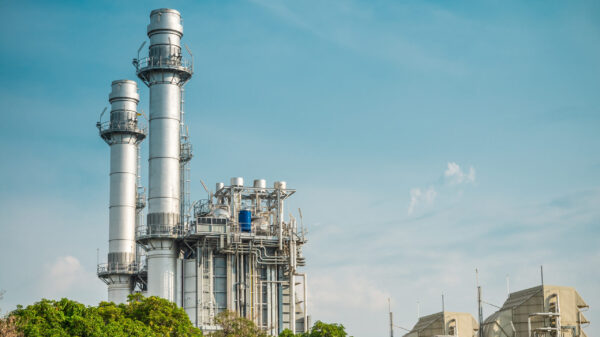The Bessemer City Council has voted to approve the construction of a $14 billion hyper-scale data center despite objections from residents and environmental groups who raised concerns over pollution, and energy and water usage.
On Tuesday night, the council voted 5-2 to rezone 670 acres of land just inside of Bessemer’s city limits from residential to light industrial. The move effectively cleared the final hurdle standing in the way of Project Marvel, the proposed 4.5-million-square-foot data processing center consisting of 18 Walmart Supercenter-sized buildings that developer Logistic Land Investments hopes to construct in Bessemer.
The council previously approved a rezoning ordinance in October allowing data centers to be built in light industrial zoning while also reclassifying several parcels of land from agricultural to light industrial zoning. With Tuesday’s vote, the council has now fully greenlit the project, bucking many constituents’ concerns that the data center will negatively impact city utilities and the local environment.
According to Logistic Lands Investments’ own estimates, the center is projected to consume a whopping 1,200 megawatts of energy—more than 90 times the amount of energy used by all residences in Bessemer and more than 10 times that used by all residences in Birmingham.
That power drain would result in a 10 percent increase in Alabama Power’s total statewide electricity demand, and could push the utility to double down on fossil fuel investments. However, the utility has maintained that it would protect its other customers in the state from any negative impacts that the center’s energy demands might cause.
“Alabama Power provides electric service to customers in our territory. We follow a disciplined process for potential large-load customers, like data centers, to ensure they pay the full cost to serve their needs, and safeguards other Alabama Power customers from any negative impacts as a result,” an Alabama Power representative told APR.
It is also estimated that the center will consume 2 million gallons of water per day from Warrior River Water Authority, a local utility. That supply would amount to around one third of the utility’s current water supply and two-thirds of the water demand for the entire population of Bessemer, even as residents claim that their water utility is already unreliable.
“They requested two million gallons a day from a fairly rural, under-resourced, drinking water utility, and we have questions about whether that utility can upgrade its system without any cost to its customers in order to serve the data center,” Ryan Anderson, a staff attorney with the Southern Environmental Law Center, told the Alabama Reflector. “And there is another really basic question of whether they are going to use surface water or ground water.”
“I am very concerned about the aquifer because they will dewater the site,” added Mary Rosenboom, a resident who lives near the proposed data center site.
Opponents of the project also fear that the center will pollute the local area with noise, carbon dioxide and methane emissions—threatening the health of both local residents and wildlife. Several groups have even come together to file a petition with the U.S. Fish and Wildlife Service to protect the rare Birmingham darter fish species in anticipation of the data center’s construction.
“The proposed construction of a hyperscale data center in Bessemer poses an imminent threat to the Birmingham darter,” said Charles Miller, policy director at the Alabama Rivers Alliance. “The fact that this, and several other rare darter species found only in Alabama, were first described this year is a stark reminder that we are still uncovering the depth of world-class aquatic biodiversity in our state. Protecting this irreplaceable natural legacy will benefit Alabamians for far longer than allowing out-of-state developers to make a quick buck.”
“These phenomenal fish will slide further toward extinction if this data center is built, so we have to act fast,” added Will Harlan, Southeast director at the Center for Biological Diversity. “They’ve been swimming in these creeks for millions of years, but without immediate protections they’ll disappear forever.”
Despite these concerns, members of the Bessemer City Council continue to support the project, touting the data center as a boon for the local economy.
Several of those members—along with Mayor Kenneth E. Gulley, his chief of staff and the city’s attorney—have signed non-disclosure agreements with the project’s developer, obfuscating the council’s relationship with the project and depriving residents of transparency. Even so, councilmembers continue to assure residents that they are operating with the community’s best interest in mind.
“We have all been listening,” Councilmember Carla Jackson said Tuesday prior to voting to approve the zoning change. “We heard your concerns, and we have waited. Unbeknownst to you, we have done the research.”
During Tuesday’s meeting, Brad Kaaber, a representative from Logistics Land Investment, also claimed that the center would have no adverse impacts on the local environment.
“In order to get to this point, we had to go through vast amounts of due diligence,” Kaaber told the city council. “We have had multiple studies done on this site, including an environmental site assessment, endangered species, traffic studies, wetland delineation reports, all of which show there are no endangered species on the site. There are no archeological findings on this site.”
Kaaber went on to claim that the project would not affect any nearby streams or waterways.
According to an estimate by the Birmingham Business Alliance, the center would generate almost $132 million in revenue for Bessemer from sales and property taxes, as well as franchise fees and building permit fees. It is also expected to create another $538 million in benefits to Bessemer city schools.
Another representative for Logistic Land Investments, Adam Rashid, told the city council that the center will provide 330 permanent jobs with an average salary of $115,000. Rashid added that the construction phase of the project will also provide around 1,000 temporary jobs each year.
It will ultimately be up to Bessemer’s residents to determine whether the data center’s benefits outweigh its drawbacks once its eight-year construction timeline is complete.



















































